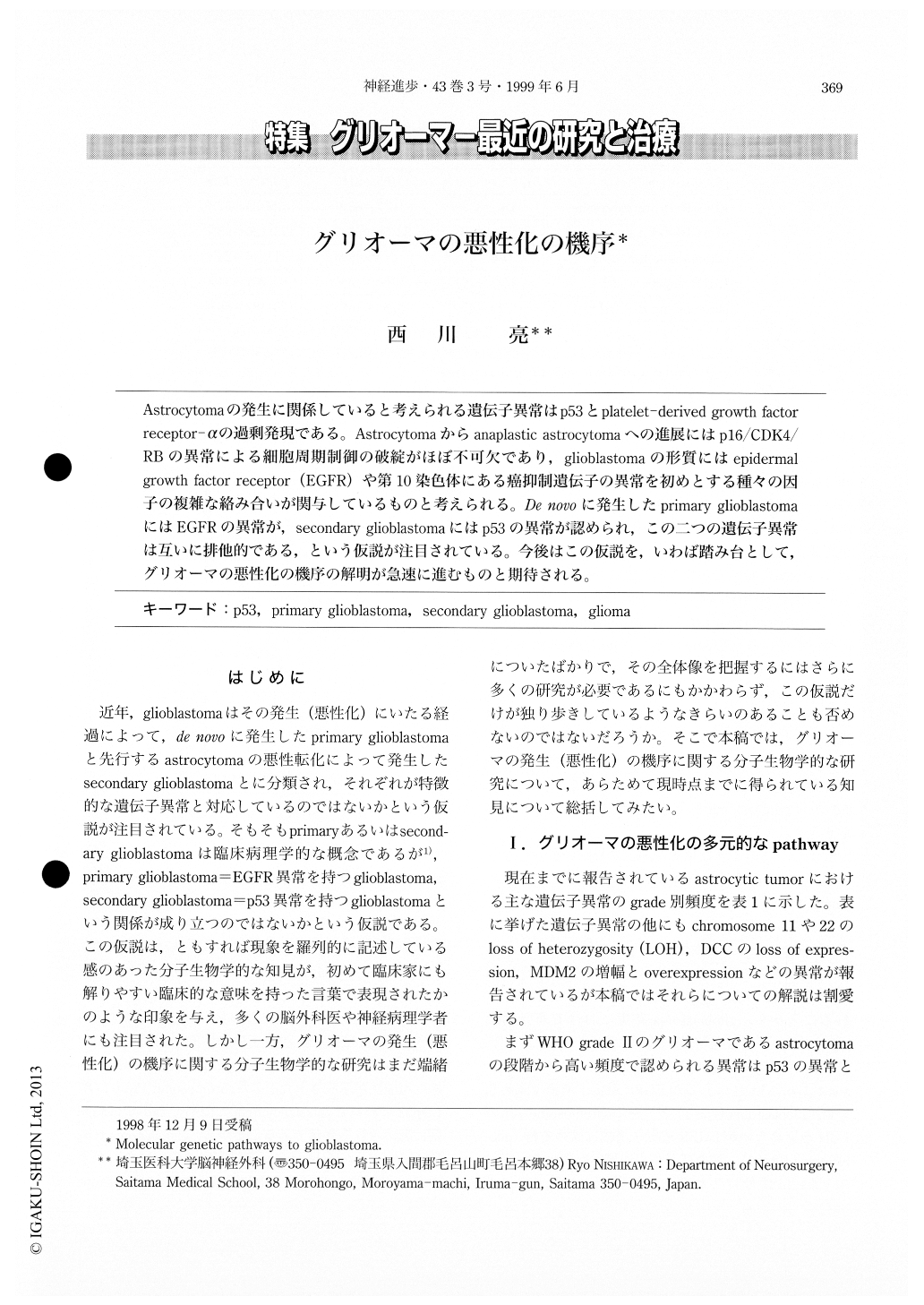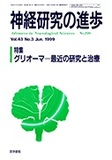Japanese
English
- 有料閲覧
- Abstract 文献概要
- 1ページ目 Look Inside
Astrocytomaの発生に関係していると考えられる遺伝子異常はp53とplatelet-derived growth factorreceptor-αの過剰発現である。Astrocytomaからanaplastic astrocytomaへの進展にはp16/CDK4/RBの異常による細胞周期制御の破綻がほぼ不可欠であり,glioblastomaの形質にはepidermalgrowth factor receptor(EGFR)や第10染色体にある癌抑制遺伝子の異常を初めとする種々の因子の複雑な絡み合いが関与しているものと考えられる。De novoに発生したprimary glioblastomaにはEGFRの異常が,secondary glioblastomaにはp53の異常が認められ,この二つの遺伝子異常は互いに排他的である,という仮説が注目されている。今後はこの仮説を,いわば踏み台として,グリオーマの悪性化の機序の解明が急速に進むものと期待される。
In astrocytomas, autocrine/paracrine stimulation by platelet-derived growth factorreceptor-α coupled with inactivation of p53 gene may lead to enhanced growth and decreased apoptosis, which mechanisms are thought to be involved in the tumorigenic changes of precursor cells. Transition from astrocytoma to anaplastic astrocytoma needs disruption of theGl-S checkpoint control involvingp16, cdk4, and RB. Finally, glioblastomas may emerge in a complex vicious cycle that involves, enhanced growth, hypoxia, necrosis, angiogenesis, growth factor release, and clonal selection.

Copyright © 1999, Igaku-Shoin Ltd. All rights reserved.


